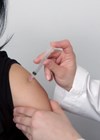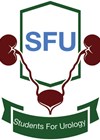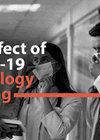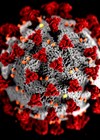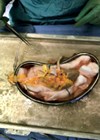Trainees' Forum
Initial impressions of urology in the UK from overseas trainees
Readers of Urology News will be familiar with descriptions of overseas visits by UK-based urological trainees, but it is sometimes beneficial to reflect on the experience of international medical graduates (IMGs) who elect to come to work and train in...
Should it be a mandatory requirement for medical students to receive the COVID-19 vaccine to attend clinical attachments?
The vast majority of medical students have positive attitudes towards the COVID-19 vaccine for themselves and patients, however, what about the small inevitable minority who resist it? Should they be prevented from attending clinical attachments in the NHS? It is...
Students for Urology: a new national society aimed at improving undergraduate exposure
As medical students, we were surprised at just how little urological content was taught at medical school. We received a basic education on how to manage urological infections, renal stones and urinary retention but nothing particularly inspiring was shared, nothing...
Burnout in surgery
When I was pregnant with my first child, I went to a talk on how to achieve work-life balance and avoid burnout. It was given by a highly respected Australian surgeon and I was eager to hear the secrets that...
SMILE: sustaining medical education in a lockdown environment
2020 posed challenges to medical education like never seen before. In an effort to contain and slow the spread of coronavirus all UK medical schools ceased or reduced face-to-face contact. This sudden, and for many, unexpected change resulted in pressures...
Mentorship and its role in surgical training
Is there a principle which could help address multiple challenges in surgical training? One which has potential to improve recruitment and retention of staff to our specialty, quality of patient care and surgeon morale? The author discusses the past present...
The effect of COVID-19 on urology training
COVID-19 has affected all aspects of medicine. Urologists have been called upon to work in vastly different working environments including acute pan-surgical teams, intensive care and medical wards. The strategies put in place by hospital management teams vary significantly across...
COVID-19: the impact on a junior registrar
Prior to the coronavirus pandemic I was a trust grade junior registrar, using this year at a district general hospital to gain experience, skills and portfolio points for round two of National Selection. My urology registrar on-call duties would consist...
Transplant urology at Guy’s Hospital: making the most of a year out before specialty training
It was gutting to miss out on urology at national selection on my first attempt. The ST3 application has become increasingly competitive and this means more appointable trainees find themselves looking to plan B. The options available can be daunting...
How to organise a urology taster week as a foundation trainee
Current exposure to urology in medical undergraduate curriculums is relatively sparse in comparison to the other surgical specialties with one study reporting just 42% of students having a compulsory attachment. These attachments were an average length of just one week...
#DontPayToStay Campaign – how one urology trainee led a successful campaign to eliminate charges for non-resident on call accommodation across England
The 2016 terms and conditions of service (junior doctor contract) introduced the following clause: 11. Where a doctor is rostered to work on a non-resident on-call working pattern and the doctor elects voluntarily, subject to the availability of accommodation, to...
The Parnell Fund Bursary 2019
At the start of July 2019 applications for the Parnell Fund Bursary were opened to trainees, consultants and healthcare professionals across the United Kingdom with an interest in female, functional and neuro-urology. Rachel Barratt, who was awarded the Parnell Fund...


